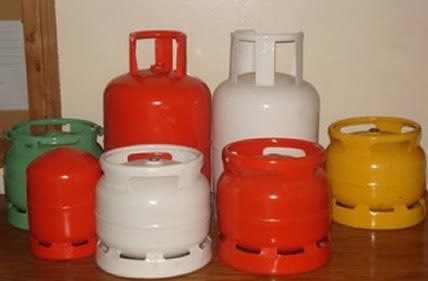The Nigeria Liquefied Natural Gas Limited (NLNG), says the company has not increase the price of Liquefied Petroleum Gas (LPG).
Mr Andy Odeh, General Manager, External Relations and Sustainable Development, NLNG, dismissed the alleged report of the increase in a statement issued in Port Harcourt on Wednesday.
He said the company cannot be blamed for any current surge especially as NLNG has so far delivered over 380,000 metric tonnes of LPG to the domestic market.
He said “NLNG has noted media reports insinuating that a price hike by the company is responsible for the surge in the domestic LPG, commonly known as cooking gas.
“The reports insinuated a price hike by the company and predicted that scarcity looms as a consequence.
“NLNG dismisses these media reports as speculative and indicative of a fundamental misunderstanding of Nigeria’s intricate market dynamics.”
Odeh said the company has grown the nation’s domestic LPG market volume from 50,000 metric tonnes in 2007 to over 1.3 million metric tonnes of both domestic and imported LPG in 2023.
“NLNG currently delivers over 450,000 metric tonnes per annum of Butane – the main product in cooking gas – and has embarked on domestic propane supply to further grow the market.
“The company has committed its entire Butane and Propane production to the domestic market from 2023, accounting for approximately 40 per cent of the total market volume.
“Since the beginning of the year, NLNG has delivered over 380,000 metric tonnes of LPG using the company’s dedicated LPG vessel,” he added.
The NLNG general manager said the company remained committed to delivering domestic LPG to locations close to the market.
He said diversifying delivery points, starting with Lagos in 2023, would ensure competition among terminal owners resulting to reduction in consumer supply chain costs.
According to him, the company was making efforts to reach terminals in Warri and Calabar as soon as challenges limiting safe delivery of gas to other locations are achieved.
“The domestic LPG market like any other is subject to dynamic market forces and various external factors.
“Factors like changes in exchange rates, and escalating price benchmarks mirroring crude oil prices, and the Panama Canal drought-induced vessel scarcity impacted transport costs especially for imported LPG.
“These factors have had a significant effect on energy prices in recent times and could undoubtedly be some of the reasons for recent price hikes witnessed in the domestic market,” he explained.
Odeh said that NLNG was fully focused towards ensuring the reliable supply of LPG production to the domestic market at prices that are reflective of the market



